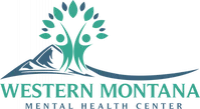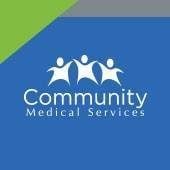Winds of Change
Drug Rehab Center in Missoula, Montana
Winds of Change is a substance abuse and addiction recovery facility located in Missoula, Montana, that offers individualized treatment, evidence-based strategies and a range of services including therapy, medication-assisted treatment, life skills training, and community outreach, to help individuals develop coping skills and psychological strength to assist them in long-term sobriety.
About This Montana Facility
Winds of Change is a substance abuse and addiction recovery facility located in Missoula, Montana, dedicated to providing quality care for individuals with substance use disorders. The facility is committed to individualized treatment, providing clients with evidence-based strategies and strategies tailored to their specific needs and goals. Winds of Change offers a range of services including individual and group therapy, medication-assisted treatment, life skills training, and community outreach. Clients also benefit from intensive family programming and holistic health services, including mindfulness, nutrition counseling, and physical activity.
Winds of Change focuses on helping individuals develop coping skills and psychological strength to assist them in long-term sobriety. The facility also offers extensive aftercare programs, which are designed to support clients as they transition back into their communities. The team at Winds of Change collaborates with clients and families to set realistic and attainable goals for clients and provide the necessary resources for recovery.
Winds of Change has achieved a number of accreditations, including being certified by the Commission on Accreditation of Rehabilitation Facilities (CARF) and the Joint Commission. The facility also holds the Distinguished Quality Assurance Award from CARF International and is a SAMHSA-certified opioid treatment program. In addition, Winds of Change is committed to providing individualized care and has developed a specialized, evidence-based treatment approach. This approach focuses on the holistic care of clients and includes a comprehensive review of individual situations and needs to ensure the best possible treatment outcome.
Genders
Ages
Modality
Additional
Accreditations
State License
SAMHSA
Conditions and Issues Treated
There are different kinds of Dual Diagnosis:. A person who simultaneously experiences both a mental illness and an addiction disorder. Or, a person who experiences one or more coexisting (simultaneous) mental health conditions in addition to a primary substance use disorder.
The treatment requires a multi-disciplinary approach, it’s crucial for individuals to partner up with a healthcare provider who understands all the recovery components.
Levels of Care Offered at Winds of Change
This center offers a variety of custom treatment tailored to individual recovery. Currently available are Aftercare Support, Dual-Diagnosis, Outpatient, with additional therapies available as listed below.
The outpatient programs in Missoula, MT are for those addicted drugs or alcohol. The goal of the outpatient rehabilitation program is to make them stop abusing drugs or alcohol, reduce drug use or addictive behaviors, and become entirely sober. It is generally required to attend the outpatient program for 10-12 hours every week.
Patients can be administered on-the-spot medication to ease withdrawal symptoms such as anxiety, increased heart rate, and even depression. Groups such as Alcoholics Anonymous (AA) and Narcotics Anonymous (NA) can be used as a part of outpatient treatment to help maintain sobriety.
Aftercare support is a service many addicts need to ensure their success at recovery. This service usually includes one-on-one or group therapies, assistance from a sponsor and other types of help designed to make sure the patient continues living a life free from drugs.
Patients also may require medication to help them battle addiction. Some people have been able to successfully recover without additional medications, but others have found that they need help during their transition. Long-term, the patient must take the initiative to attend meetings and receive help from other addicts in recovery.
Therapies & Programs
People in addiction recovery can benefit from individual therapy. This type of therapy involves meeting with a therapist one-on-one. This allows for a personal and trusting relationship to be built so that the patient can be truly themselves and express any emotions they feel. Individual therapy leads to greater understanding and peace about your triggers for addiction and coping strategies to prevent relapse.
Group therapy sessions are held in rehab facilities, clinics, churches or community centers that offer drug addiction treatment. People who attend these groups are encouraged to voice their feelings and support other addicts in recovery. This helps group members strengthen their own recovery program while cheering on others who are struggling with sobriety.
Group therapy sessions provide recovering addicts with a chance to cope with everyday situations that many face. Group therapy sessions are held in rehab facilities, clinics, churches or community centers that offer drug addiction treatment.
People who attend these groups are encouraged to voice their feelings and support other addicts in recovery. This helps group members strengthen their own recovery program while cheering on others who are struggling with sobriety.
If you’re looking for addiction treatment, it’s important to find a facility that offers trauma therapy. This type of therapy helps people process and understand the past traumas that have led to their addiction. Trauma therapists will work with clients to help them understand their past and present relationships and show them that they are worthy of love. This therapy is typically done using visualization, discussion, and writing down thoughts and feelings.
Trauma Therapy is a form of therapy that involves working with a patient to help them process and understand the past trauma(s) in their life. This therapy is typically done using techniques such as visualization, discussion, and writing down thoughts and feelings. The main goals of trauma therapy is to help clients express their emotions and talk about what they are feeling.
Dialectical Behavior Therapy (DBT) is a form of cognitive-behavioral therapy that helps people understand how they connect their thoughts, behaviors, and feelings. It can give them more control over their actions, effectively stopping self-harm ideations and attempts in some patients. It also helps put those with borderline personality disorder into control for managing mental struggles.
A new study has shown that DBT works for those with self-harm behaviors and addictions by giving them therapy they can relate to and understand.
Cognitive Behavioral Therapy (CBT) helps addicts identify faulty, negative thinking so that they can work together with the therapist to find healthier ways of thinking. CBT focuses on specific aspects of each person’s thinking, feeling, physiology, and behavior. It aims to identify specific problems in these areas, and create a personalized treatment strategy.
Life Skills Services offered at Winds of Change assists addicts in their recovery by teaching them healthy coping mechanisms that will aid them in becoming sober, focussing on helping people enter into, and maintaining long-term sobriety. Winds of Change provide Life Skills Services at varying levels of intensity, specific to the needs and requirements of each patient.
Benefits of Life Skills Services offered at Drug Treatment Centers in Montana:
- Restores hope and empowerment — Helps addicts believe that recovery is possible and instills a new confidence in their ability to achieve a positive, drug-free future
- Enhances family involvement — Encourages families to get involved in the recovery process and supports their understanding and encouragement of healthy behavior.
- Increases patient’s compliance — Helps patients take responsibility for and ownership of their recovery and encourages continued progress
- Reduces relapse rates — Encourages long-term abstinence and emphasizes the importance of establishing sober support systems.
Addicts often experience intense cravings for sugary foods during recovery. By teaching addicts how to eat well and stay healthy, therapists can help them manage their cravings over the course of treatment.
During these sessions, Missoula, Montana dietitians and therapists will offer advice about healthy eating options and teach addicts how to make specific changes in their diet that can help reduce the effects of cravings during recovery.This type of therapy is often used in conjunction with other types of addiction treatment services. By identifying specific triggers and developing strategies to help addicts avoid relapse, most individuals can overcome their cravings and stay sober for good after they finish rehab.
The first step to becoming a non-smoker is the choice to quit smoking. Nicotine replacement therapies are effective because they provide you with the nicotine you are addicted to without inhaling carcinogens from cigarettes.
There are several types of NRT. These include:
- Nicotine gum
- Nicotine patches (transdermal systems)
- Nasal spray
- Lozenges
The benefits to using NRT can include:
- Reduce the risk of heart disease and cancer
- Reduce the anxiety and irritability associated with quitting smoking
- Reduce the risk of type II diabetes.
- Improved fertility in women
Patient Experience
Creative Arts
Creative Arts Therapy is a treatment method for patients of Winds of Change in Missoula, Montana who are victims of addiction to drugs, alcohol, or other substances. Group Creative Arts Therapy sessions help addicts get sober by allowing them to meet and talk with peers who are going through the same problems. This builds trust and helps addicts understand that they are not alone. Depending on the severity of the patient’s drug or alcohol problem, they may attend group creative art therapy sessions or individual sessions.Experiential Therapy at Winds of Change
Experiential Therapy allows addicts to release emotions in a safe environment. The process involves addicts painting their feelings and releasing them on a canvas. LPE – Love, Peace, and Equilibrium is one of the most popular forms of experiential therapy.
Fitness Therapy
Fitness therapy is beneficial in drug treatment programs. It provides an alternate coping mechanism for stress, a new outlook on life, and a sense of community and involvement (NIDA, 2002). It is especially useful for those who were formerly involved in organized sports.
Additional benefits of fitness therapy are enhanced physical appearance, an improved body image, and socialization with like-minded individuals. Due to fitness therapy, patients are less likely to relapse into drug addiction. Fitness therapy leads to a reduction in depression, anxiety, and stress. It can even help to improve memory and concentration.
Payment Options Accepted
For specific insurance or payment methods please contact us.
Additional Details
Specifics, location, and helpful extra information.
Missoula, Montana 59808 Phone Number(406) 541-4673 Meta DetailsUpdated November 25, 2023
Staff Verified
Patient Reviews
There are no reviews yet. Be the first one to write one.
Missoula, Montana Addiction Information
Montana has one of the highest rates of drug and alcohol abuse in the nation. More than 280,000 of its residents engage in drug or alcohol abuse every year. Marijuana, in particular, is heavily used among high school students. Despite these daunting trends, the state is grappling with the issue head-on.
Missoula has a rate of overdose deaths higher than the national average. In Missoula, there are about 15.8 overdose deaths per 100,000 residents annually. In 2012, there were 726 cases of drug-related hepatitis in Missoula. Methamphetamine and cocaine are also common drug choices among citizens of Missoula, MT. It is important to consider the type of treatment that will be most effective for you or the person you love.
Treatment in Nearby Cities
- Baker, MT (463.3 mi.)
- Libby, MT (127.0 mi.)
- Wibaux, MT (463.7 mi.)
- Superior, MT (46.9 mi.)
- Butte, MT (92.7 mi.)
Centers near Winds of Change
The facility name, logo and brand are the property and registered trademarks of Winds of Change, and are being used for identification and informational purposes only. Use of these names, logos and brands shall not imply endorsement. RehabNow.org is not affiliated with or sponsored by Winds of Change.






